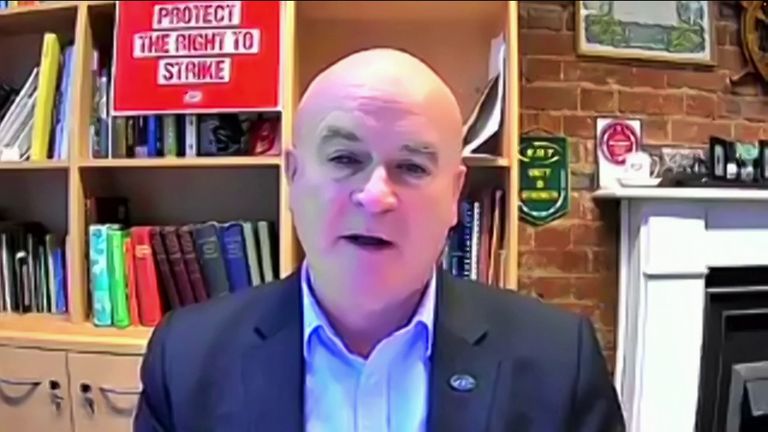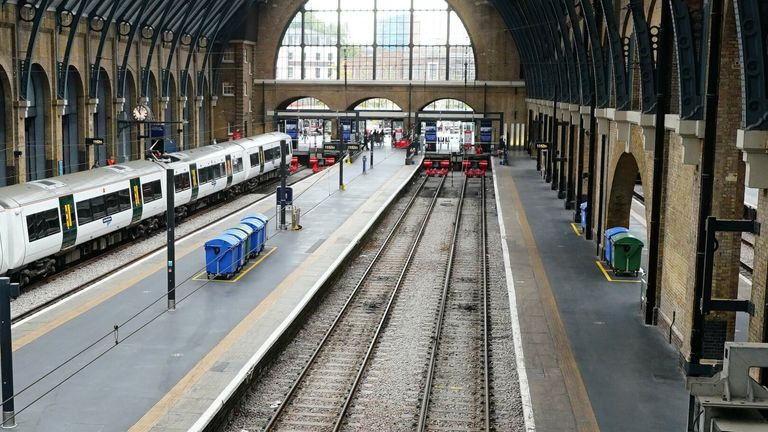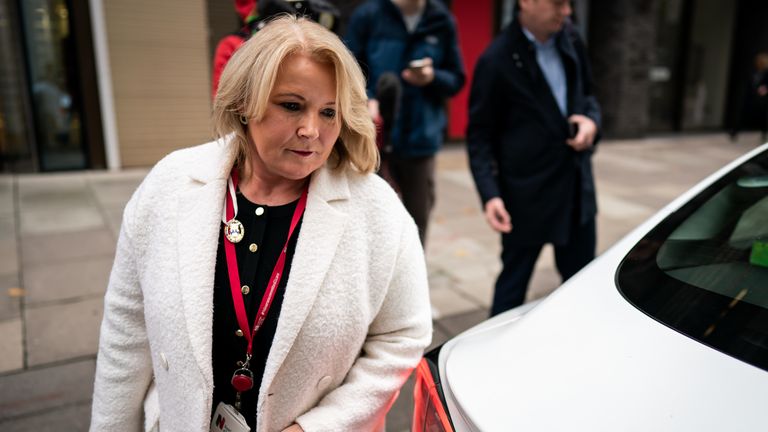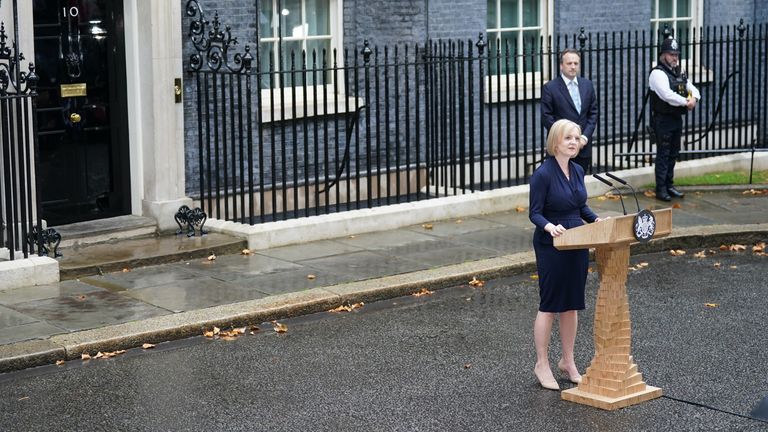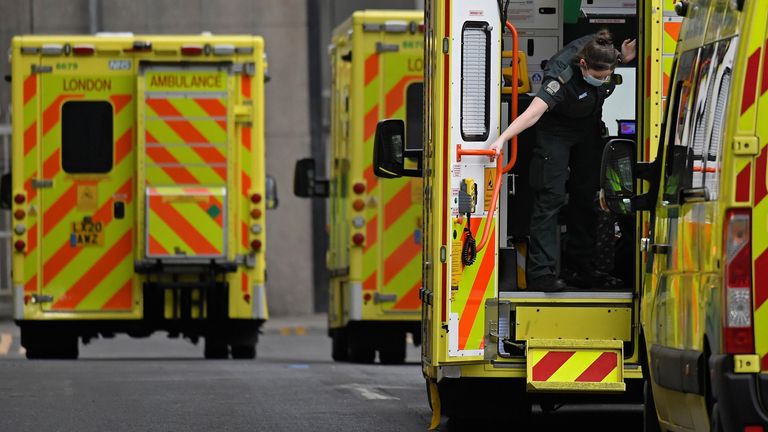Talks to avert the nursing strike on Thursday have failed after the union leader behind the action accused the health secretary of refusing to discuss pay.
Pat Cullen, general secretary of the Royal College of Nursing, said on Monday night: “I needed to come out of this meeting with something serious to show nurses why they should not strike this week. Regrettably, they are not getting an extra penny.”
Earlier, No 10 had indicated Steve Barclay, the health secretary, would not be willing to negotiate a new pay offer for nurses, but it was thought other aspects of the nurses’ employment could be up for discussion.
Rail strikes will go ahead this week – politics latest
However, the union had made it clear that pay would have to be on the table if the government wanted to avert the strike action on Thursday.
Ms Cullen told Sky News she went into the meeting with “hopes” but the government “was true to its word – they would not talk to me about pay”.
She said Mr Barclay “showed total belligerence this afternoon, he closed his books and walked away”.
“I did most of the talking, there was very little talking coming from the other side of the table, except to keep repeating to me that he has accepted the independent pay review body recommendation,” she said.
The union is demanding a pay rise of 5% above the RPI rate of inflation, which was 14.2% in October, but Ms Cullen has hinted that she could compromise if the government negotiates on pay.
Ministers have repeatedly insisted they can’t afford to give inflation-busting pay rises and say they have accepted the independent pay review body’s recommendation of a £1,400 rise.
Read more:
Strikes every day before Christmas – which sectors are affected and why
Public sector pay rises – who decides and how?
Nurses ‘left out in the cold’
Ms Cullen said nurses’ pay has dropped by 20% in the past decade, so what they are looking for is “pay restoration”.
“They are not asking for their pockets to be lined with gold, they never have and they never will,” she said.
She said nurses are living “beneath the breadline” and “can no longer afford to be in the profession”.
“We have been left out in the cold by our secretary of state,” she said.
During the meeting, Mr Barclay told Ms Cullen that pay increases for nurses would take money from frontline services, a spokesperson from the Department of Health and Social Care said.
“Mr Barclay said he would continue to engage with the RCN as we move into the pay review process for next year and on non-pay related issues,” the spokesperson added.
Please use Chrome browser for a more accessible video player
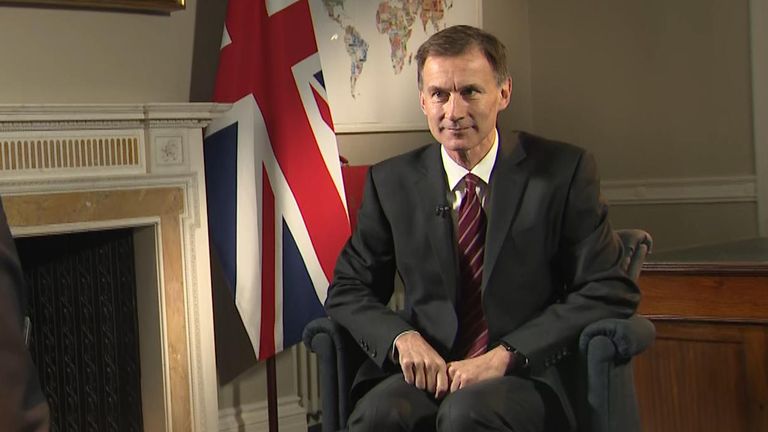
2:28
Public sector pay review is fair, says chancellor
Mr Barclay was under increasing pressure to settle a deal after strikes by ambulance staff and some NHS workers in Scotland were called off today, as members of two unions voted to accept the Scottish government’s recent pay offer.
Unite and Unison members cancelled the planned industrial action following negotiations with Scottish Health Secretary Humza Yousaf and the intervention of First Minister Nicola Sturgeon.
The new deal means NHS workers in Scotland would remain the best-paid in the UK, with workers getting pay rises ranging from £2,205 to £2,751.
For the lowest paid it would be a rise of 11.3%, with an average rise of 7.5%.
However, nursing strikes will still go ahead in Wales after last-minute talks to resolve the dispute over pay also collapsed on Monday.
The first nurses’ strike will take place on 15 December and, should no resolution be found afterwards, a second strike day will take place on 20 December.
Ms Cullen said she expected further strikes to go ahead next year unless the government is willing to discuss pay.
Nurses are among hundreds of thousands of workers striking this winter across many sectors.
Earlier, the RMT union voted to reject an offer from Network Rail aimed at averting a series of rail strikes in the coming weeks.
Labour’s shadow health secretary, Wes Streeting, accused Mr Barclay of “spoiling for a fight”.
He said: “They want to blame nurses, blame paramedics, blame NHS staff for challenges in the National Health Service which are the direct fault and responsibility of 12 years of Conservative mismanagement – frankly, I think it’s disgusting.”



